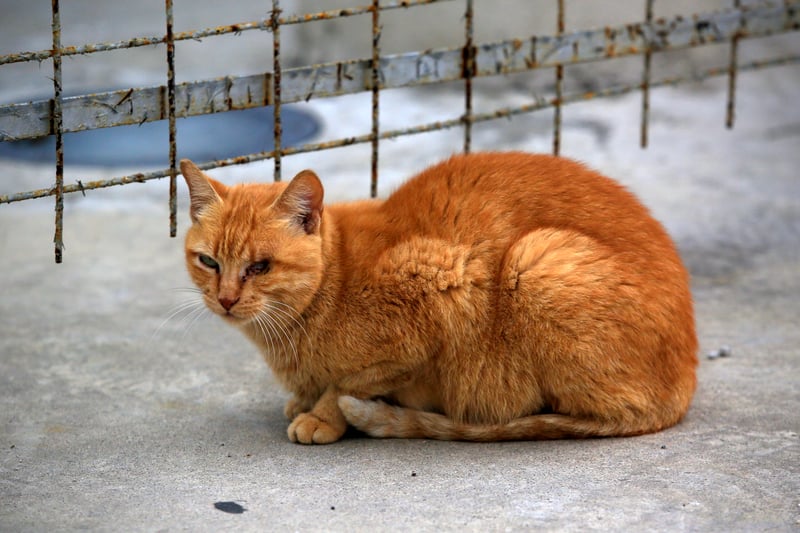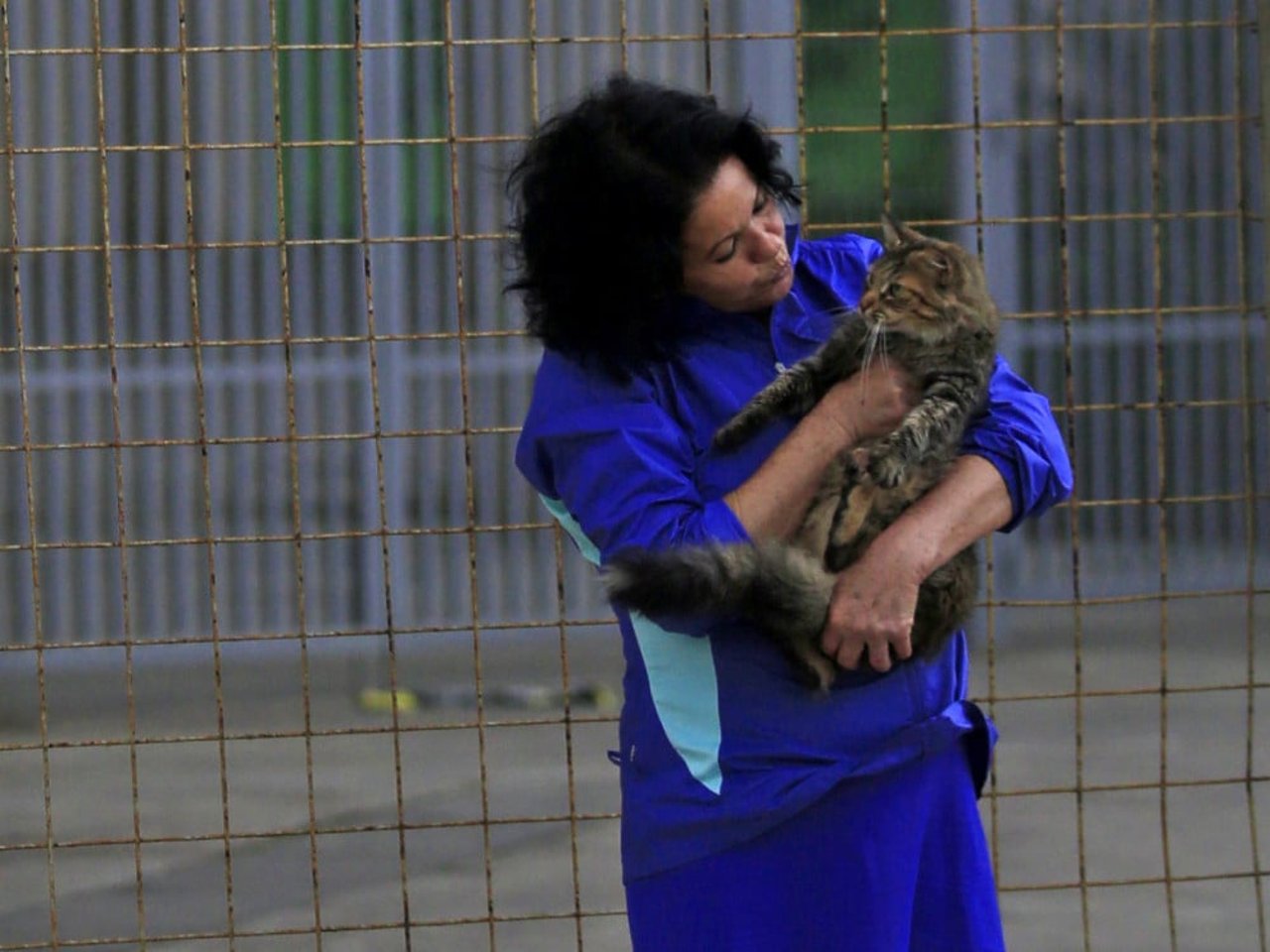
Rio 2016: Rescuing over 100 cats from Maracanã Stadium
News
Over 100 stray cats have been living at Maracanã Stadium, where the Olympic Games opening ceremony was held on Friday. We’re helping to rescue the cats and keep them safe during, and after, the Games.
All the cats, along with other animals, are being taken to vet clinics to be spayed or neutered, vaccinated, and dewormed. They’re then taken to a shelter built specially for Rio 2016 by the Olympic Games Organising Committee, and with World Animal Protection’s support.
So far, over 40 cats have been rescued.
Natalia Kingsbury, an animal protector who has dedicated 20 years of her life to helping these cats, was relieved to see some of the weakest and most hurt animals finally rescued: “I am so happy, I thank the NGO [World Animal Protection] for taking care of the Maracanã’s cats. They were the first ones that ever helped us,” said Kingsbury.
Natalia Kingsbury cuddles one of the stray cats fromt Maracanã
“We are working restlessly to keep the animals safe during the Games, but our main hope is that they can each find a caring and responsible family,” said Rosangela Ribeiro, Veterinary Programmes Manager at World Animal Protection.
We are organising a series of adoption campaigns for cats and dogs rescued near the Olympic sites, in partnership with Special Secretariat for the Defense of Animals (SEPDA).
A tough but worthwhile rescue
One of the most emotional moments of the operation was the rescue of a ginger male cat (still unnamed) with a severe injury on one of his front paws.
Last Thursday, Kingsbury accompanied one of the rescue teams to Maracanã and helped to rescue the ginger cat.
Injured and scared, the cat would repeatedly come closer and then hesitate. Kingsbury intervened and had to ask all volunteers to step back. A humane trap was set with cat food in it. “He came walking from far, far back, with some difficulty. But he was very hungry. And eventually entered the trap,” remembered Kingsbury.
The cat was then taken to a vet clinic to have his wound treated. “We believe that we won’t need to amputate his leg and that he will be able to walk again”, said Rosangela Ribeiro.
Mãezinha and Tiópia
Another special rescue was of a female cat known as Mãezinha, ‘little mum’ in Portuguese.
According to Kingsbury, Mãezinha had at least four pregnancies while living in Maracanã. “Each one of those resulted in four to five kittens,” she recalls. The uncontrolled reproduction threatens the health and welfare of female cats and newborns, but also adds to the ever-increasing number of animals living on the streets.
Female cats, such as Mãezinha, were prioritised on the rescue operations. This week Mãezinha was rescued and is now waiting to be neutered so she can be ready for adoption.
Some of the cats at Maracanã have already been neutered or spayed, and one of those is next in line for rescue. Named after the country Ethiopia, the fragile female is a true survivor. “Tiópia” has lived in Maracanã for at least 6 years. During that time, both of her sisters were brutally killed by animal abusers.
“It was pure cruelty,” laments Kingsbury, “they died by being punched in the head.”
Tiópia survived. Though undernourished, like many cats at Maracanã, this small female is still wandering around the colossal Stadium and is very dear to Kingsbury.
“There are still many cats to rescue,” she said, “but Rosangela and World Animal Protection, along with the Committee, are doing a wonderful job. My hope is the animals of Maracanã will now have a better future.”
A long-term solution
“People should never abandon an animal. Especially at Maracanã, where big events are held and there is a high concentration of people. The animals end up getting hurt. They are completely vulnerable and depend on the help of humans. Abandoning them is cruel and make them subject to starvation, diseases, abuse and being run over by cars,” Rosangela explains.
To ensure longer-term needs of stray animals of Rio, we are raising awareness about responsible pet ownership with the Rio 2016 Organising Committee. A campaign was developed specifically for people living around the Maracanã Stadium and in other communities of Rio de Janeiro.
We are working restlessly to keep the animals safe during the Games, but our main hope is that they can each find a caring and responsible family. – Rosangela Ribeiro, Veterinary Programmes Manager at World Animal Protection.
